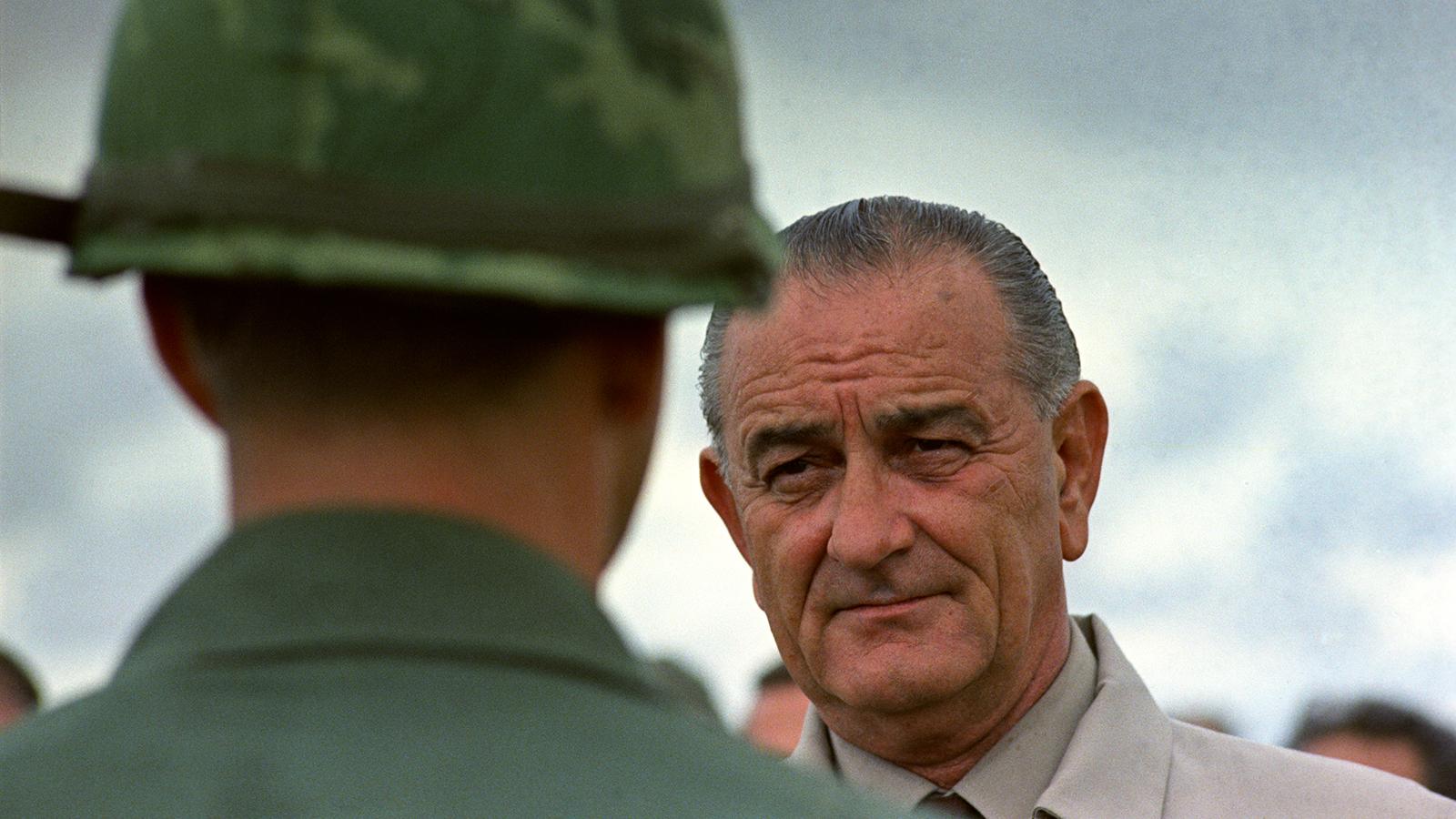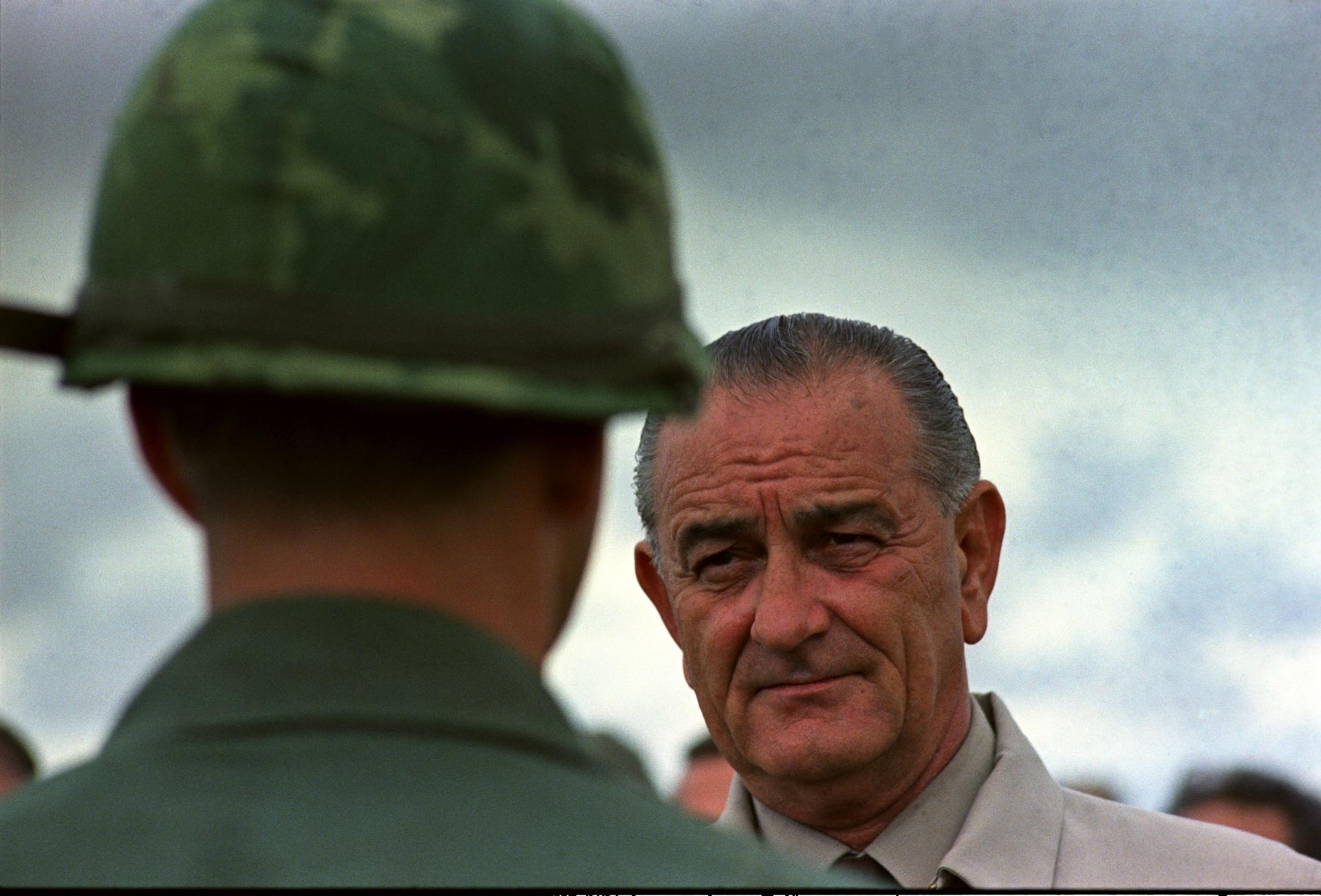LBJ's War
A president bound for greatness. A ruinous Vietnam war. How did Lyndon Johnson lose his way?
5 – The Preacher and the President
“I’ll try to be worthy of your hopes,” LBJ told Martin Luther King, just days into his presidency, and for the next two years, largely made good on that vow. Dr. King, for his part, recognized their common goal – racial and economic justice – and threw his own considerable weight behind it, until finally, the war in Vietnam made it impossible to do so any longer. A look back at the 1967 speech that broke their bond forever.
3 – The Carrot and the Stick
By the spring of 1965, pressure is building on President Johnson to make his case for the war to the American electorate. He resists, preferring to manage the conflict without public scrutiny, but finally agrees to go public, in a speech at Johns Hopkins University. The strategy behind the speech: a little something for everybody. A look at how that strategy works out, and what it reveals about LBJ’s congenital bias for secrecy.
2 – The Tonkin Incident(s)
Twice in six weeks, in the late summer of 1964, U.S. destroyers reported they were under unprovoked attack, by North Vietnamese PT boats, while on patrol in the Gulf of Tonkin. The first incident produced a massive airstrike in retaliation, and three days later, the Gulf of Tonkin Resolution, which changed the course of the Vietnam War. The second attack produced…no response at all. Did Lyndon Johnson learn something along the way?
1 – The Churchill of Asia
“They started with me on Diem,” LBJ told an old friend, “that he was corrupt, and he ought to be killed. So, we killed him.” Not quite true, it turns out, but the brutal assassination of South Vietnam’s President Diem, just three weeks before JFK met the same fate in Dallas, would cast a long shadow over the Johnson presidency, and shape LBJ’s thinking on the war. 1963.

